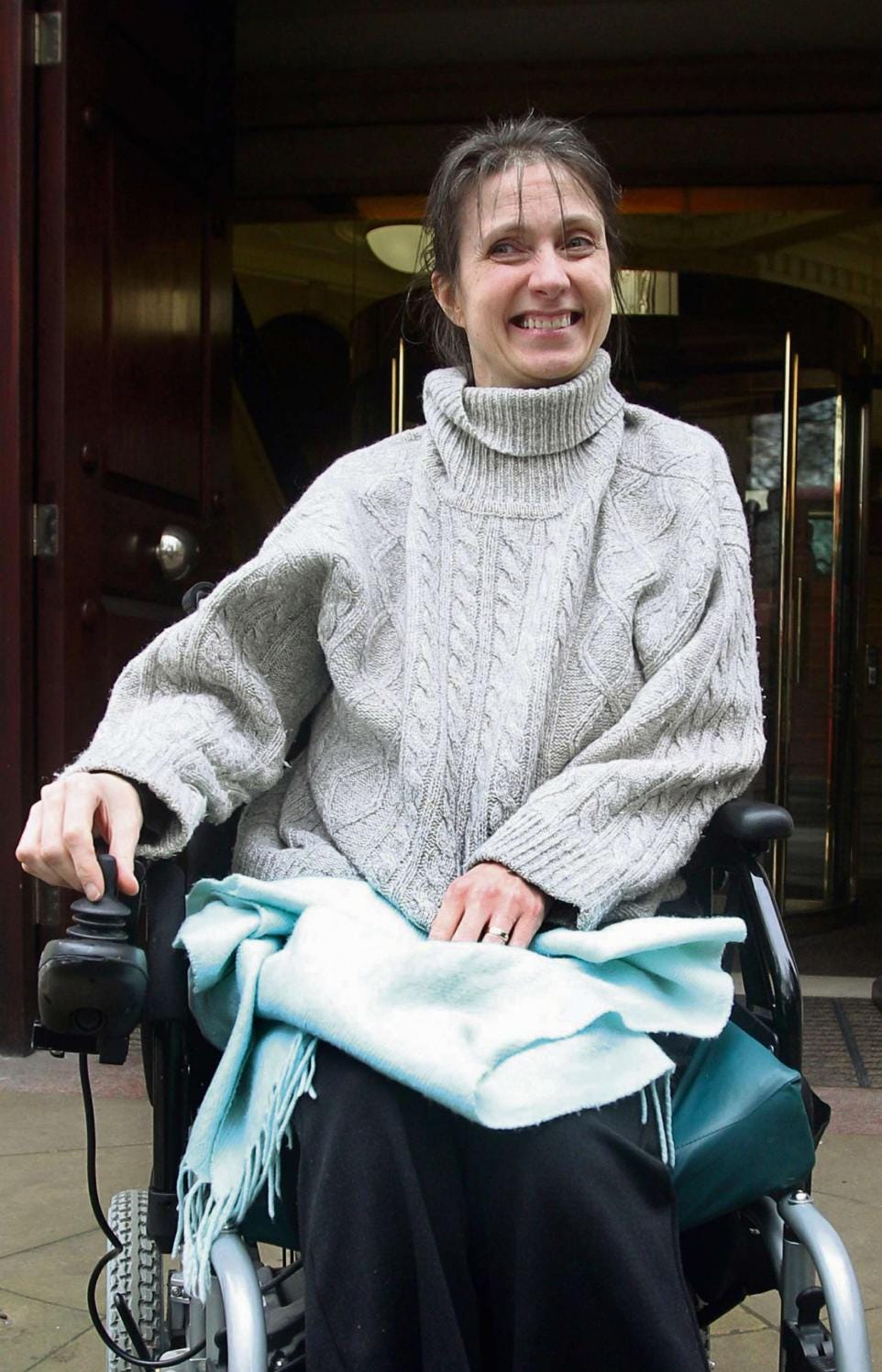We’re entering the battle stage of the debate on assisted dying in England and Wales and the trenches are being dug. In the process some of the objections to changing the law are beginning to resemble the way arguments are conducted when there’s a proposal to build a new homeless hostel or drug rehabilitation centre round the corner from your house.
Let’s first acknowledge that there can be some very unhelpful determinist tropes used in the popular case made for liberalising the law, such as the “being on the wrong side of history” barb aimed at those who oppose any change. Second, a lot of the recent context given to this discussion has consisted of popular figures or their relatives making emotional appeals for the right to choose to have one’s suffering curtailed. I’m thinking here of the cases of the late Diana Rigg and the still extant Esther Rantzen.
Opponents of change believe that the atmosphere created by this publicity has helped to skew the popular attitude heavily towards assisted dying. In any case the current public view is clear. The pro-AD organisation Dignity in Dying commissioned a large sample poll from Opinium earlier in the year. The main question asked was:
To what extent would you support or oppose making it legal for someone to seek “assisted dying” in the UK, and how strong is your view?
75% of respondents supported a change in the law and 14% opposed it. This pattern was true regardless of party affiliation and of faith, and also of those with disabilities (I haven’t dug into the way this last was ascertained but feel able to take it on trust).
When the Labour MP for Spen Valley, Kim Leadbeater came first in the ballot of private members bills, she chose to introduce a bill to legalise assisted dying. She did this with active encouragement of the government and in line with the post-war tradition that new legislation on ethical and “conscience” issues should not be introduced and whipped through by political parties. Some regard this tradition as outdated or as a cop-out by government, noting that gay marriage was directly legislated by the coalition government. I think that in the case of assisted dying a private members bill is probably the best way to have the issue decided.
There seems little doubt that Keir Starmer personally supports Leadbeater’s bill. In 2009 Debbie Purdy, who was suffering from MS and contemplating what would happen in the disease’s final stages when she was no longer capable of taking her own life, won her case in the House of Lords (what would now be the Supreme Court). Her argument had been that it was a breach of her human rights not to know if her husband would be prosecuted if he accompanied her abroad in her quest to die.
In making their ruling in Purdy’s favour the law lords ordered the Director of Public Prosecutions to come up with guidance on what would make a prosecution is these circumstances more or less likely. The buck passed from legislators and judges to the Crown Prosecution Service. The DPP in 2009 was Sir you-know-who. Starmer consequently has a very good idea of the hypocritical messiness of the current arrangement. The first Commons debate on the Leadbeater bill is scheduled for the end of next month. That bill will allow someone who has a terminal condition and has less than six months to live to seek assistance in taking their own lives, subject to approval from two doctors and (possibly) a judge.
There are those arguments against assisted dying (or its relative, voluntary euthanasia) that spring from pure principle – usually informed by religion – about the sanctity of life. And there are those who argue from an equally (albeit secular) faith-based position that the human right to bodily autonomy requires a person to be entitled to make their own decisions about the circumstances of their own deaths – which would include the right to procure assistance without fear of persecution.
Most of us inhabit neither pole. I think it’s fair to summarise majority opinion as being that we want for ourselves the right not to suffer unnecessarily while at the same time not encouraging vulnerable people to take their own lives or allowing them to be pressured into doing so by unscrupulous third parties. It is a matter of practicalities and safeguards.





